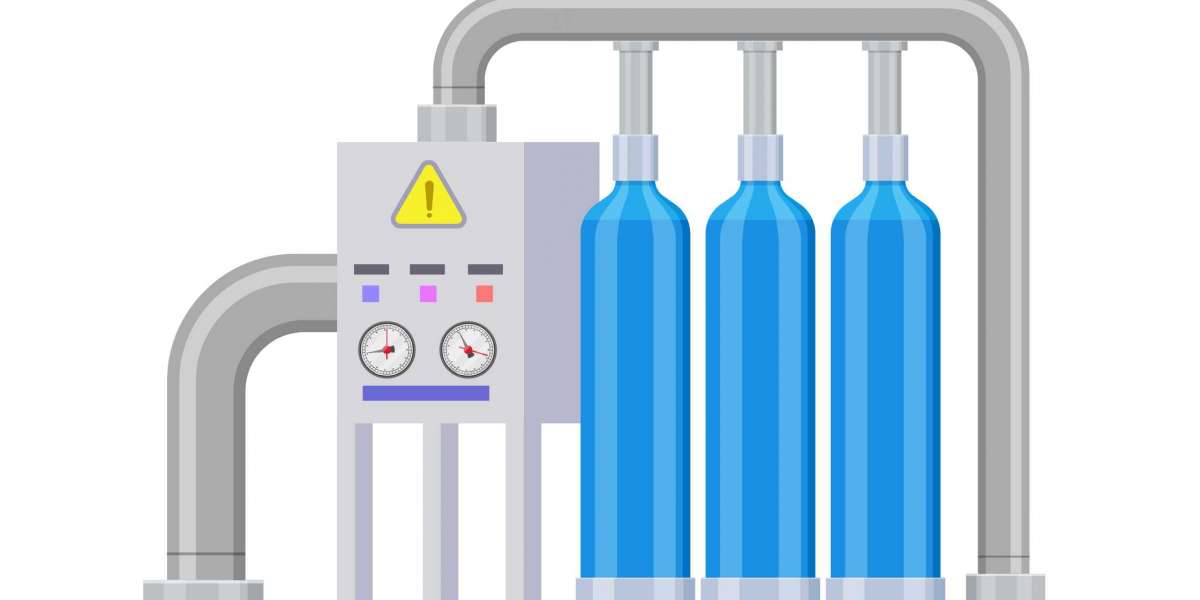Gas filtration systems are an effective solution for improving indoor air quality by filtering out harmful contaminants. Tools like the MRU Gas Analyzer play an essential role in this process, allowing real-time monitoring of airborne pollutants to ensure clean and safe air in industrial facilities. In this article, we’ll explore the mechanisms, benefits, and best practices of using gas filtration systems to enhance air quality in industrial environments.
Understanding Indoor Air Quality Challenges in Industrial Environments
What is Indoor Air Quality (IAQ)?
Indoor air quality (IAQ) refers to the cleanliness and safety of air inside a building, which directly affects the health of occupants. In industrial settings, maintaining IAQ can be particularly challenging due to a high level of contaminants such as dust, fumes, gases, and chemicals.
Common Pollutants in Industrial Facilities
- Volatile Organic Compounds (VOCs): Emitted by solvents, paints, and chemical processes, VOCs can cause respiratory issues and other health risks.
- Particulate Matter (PM): Includes dust, smoke, and other fine particles that can enter the respiratory system and cause lung irritation.
- Toxic Gases: Includes gases like carbon monoxide (CO), sulfur dioxide (SO₂), and nitrogen oxides (NOx) that are hazardous even at low levels.
- Chemical Vapors: Often released during manufacturing and can contribute to poor IAQ.
Health Risks of Poor IAQ in Industrial Settings Workers exposed to poor indoor air quality may experience:
- Respiratory issues (asthma, bronchitis)
- Headaches and dizziness
- Long-term conditions like heart disease or cancer in extreme cases
Role of Gas Filtration Systems in Improving Air Quality
What Are Gas Filtration Systems?
Gas filtration systems are designed to remove harmful particles and gases from the air, making it safe to breathe. These systems are typically used in industrial settings to filter out contaminants that could affect both workers and equipment.
Types of Gas Filtration Systems
- Activated Carbon Filters: Effective in removing VOCs and toxic gases by adsorbing chemicals onto the surface of activated carbon.
- HEPA Filters: High-efficiency particulate air filters capture fine particles, including dust and pollen.
- Electrostatic Filters: Use electric charges to attract and trap particles, ideal for capturing larger pollutants.
- Catalytic Filters: Designed to neutralize toxic gases like carbon monoxide by transforming them into less harmful compounds.
How They Work Gas filtration systems pull in contaminated air, which passes through a series of filters, each targeting specific types of pollutants. These filters capture or neutralize contaminants before releasing clean air back into the environment.
Advantages of Using Gas Filtration Systems in Industrial Settings
Enhanced Worker Health and Safety Cleaner air means a safer work environment. By filtering out harmful gases and particles, these systems reduce health risks and improve overall worker productivity.
Compliance with Regulatory Standards The Occupational Safety and Health Administration (OSHA) and Environmental Protection Agency (EPA) set strict standards for air quality. Gas filtration systems help industrial facilities stay compliant by maintaining IAQ within permissible levels.
Improved Equipment Longevity Industrial machinery can be sensitive to dust and fumes. Gas filtration systems reduce wear and tear on equipment by preventing dust buildup, reducing maintenance needs, and prolonging machinery life.
Environmental Responsibility Using gas filtration systems aligns with sustainability goals by reducing the emission of harmful pollutants into the environment, supporting efforts to minimize the industrial impact on air quality.
4. How Gas Filtration Systems Work with Air Quality Monitors
The Role of MRU Gas Analyzers in Air Quality Management MRU Gas Analyzers provides precise measurements of pollutants, allowing industrial facilities to monitor and control indoor air quality in real time. By integrating gas analyzers with filtration systems, facilities can adjust settings based on current air quality levels.
Data-Driven Adjustments for Filtration Efficiency Data from gas analyzers enable facilities to adjust filtration speeds and levels, ensuring optimal air quality without excessive energy use.
Choosing the Right Filtration System Selecting an appropriate gas filtration system depends on
- Type of Pollutants: Activated carbon for VOCs, HEPA for particles, and electrostatic for mixed pollutants.
- Size of Facility: Larger facilities may require multiple systems or higher-capacity filters.
- Maintenance Requirements: Some filters require regular replacement, while others need minimal upkeep.
Maintenance and Upkeep of Gas Filtration Systems
Regular Filter Replacement Filters become less effective over time and should be replaced periodically to ensure peak performance. Recommended replacement schedules depend on
Calibration of MRU Gas Analyzers Gas analyzers need regular calibration to maintain accuracy. Working with certified technicians for calibration ensures reliable data and compliance with regulations.
Inspecting System Components Routine checks on fans, vents, and electronic components help prevent malfunctions and extend the life of the filtration system.
Future Trends in Industrial Air Quality Management
Smart Filtration Systems Advancements in smart technology are making gas filtration systems more efficient. Smart systems can adjust filtration levels automatically based on real-time data, reducing energy consumption and improving performance.
Enhanced MRU Gas Analyzer Capabilities Future models of MRU Gas Analyzers will likely offer improved sensitivity, faster readings, and integration with facility management software for seamless air quality control.
Sustainable Filter Materials Eco-friendly filter options, such as biodegradable HEPA filters and recyclable carbon filters, are gaining popularity, reducing the environmental impact of air quality management.
Conclusion
The benefits of gas filtration systems extend beyond compliance and worker safety—they support a healthier, more productive work environment and reflect a commitment to environmental responsibility. With tools like the MRU Gas Analyzer, industrial facilities can monitor air quality with precision, making real-time adjustments to filtration processes to ensure a safe, sustainable, and efficient workplace.





